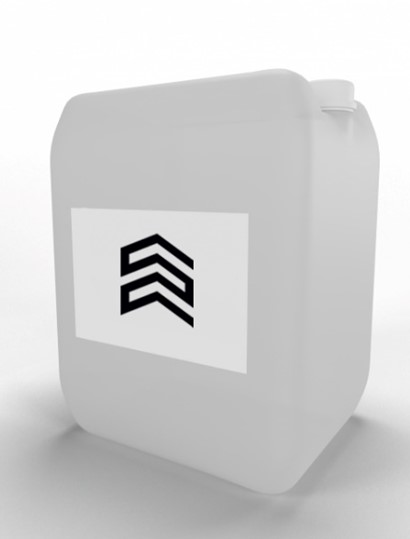Authorities asked airlines to formulate pricing policies

The Federal Antimonopoly Service (FAS) and the Ministry of Transport have sent airlines a letter with recommendations on how to formulate carrier pricing policies. "The agencies have jointly developed the main provisions that they recommended to take into account when developing and formulating commercial policies," the FAS press service reported. "The measures will make pricing in the passenger air transportation market transparent and will also increase citizens' awareness of ways to save money when buying airline tickets," the Ministry of Transport believes.
The antimonopoly service noted that airlines must reflect in their documents the methodology for determining minimum, maximum and intermediate tariffs in economy class. "Airlines must justify the choice of pricing method by providing a clear example," the service clarifies.
The authorities also propose increasing the variety of tariff groups offered by carriers "with a description of each tariff group with a specific package of additional services." Declarations "on the methods of dynamic pricing of air transportation costs used" should be posted on airline websites, the FAS specifies.
Earlier this year, the FAS of Russia opened a case against S7 Airlines. The service complained that the carrier was selling tickets at different prices within one tariff subclass. The FAS demanded that S7 develop and submit a pricing policy to the service for approval, including a justification for the established ticket fees.
Aeroflot also promised to clarify its commercial policy by the end of August. "We are finalizing this document (commercial policy. — ) Somewhere in May, a meeting was held between the head of the FAS and the general director of Aeroflot, we agreed to make the amendments that are obviously needed today. Because this document was based on the models used by foreign revenue management systems," Ivan Batanov, director of the network and revenue management department of Aeroflot, said at a meeting in the Federation Council in the summer.
Airfare pricesThe cost of economy class flights has increased significantly this year. According to the head of the Ministry of Transport Roman Starovoit, in the first half of the year , prices increased by 20%, to an average of 9,150 rubles per air ticket. In August, the price index for flights increased even more - by 30% year-on-year, according to Rosstat data. Average prices in September increased by 20.4% compared to last year, to 7,465.3 rubles per 1,000 km of transportation.
Who and how calculates the cost of a flightIssues of airfare pricing are often the subject of discussion. This year, both deputies and senators discussed the issue of limiting the cost of flights in one way or another.
At the same time, there is no single statistics on flight prices in the aviation industry. The Ministry of Transport relies on data provided by the Federal Antimonopoly Service, but it is published irregularly. Rosstat independently calculates the cost of air tickets when calculating the consumer price index. The statistics service separately provides data on average prices for air tickets (in absolute values). “But for some reason Rosstat does not take into account subsidized tickets, individual discounts, promotions, and so on, considering all of these to be isolated offers. But they also form statistics,” an RBC source in one of the airlines complained earlier.
In 2023, Rosstat and the Ministry of Transport decided to formulate a new statistical indicator - "cost of a tourism product". It will include accommodation for seven nights, as well as travel to the vacation spot and back to 18 main tourist destinations with varying booking depth, Rosaviatsia reported earlier. The publication of information on the cost of a tourism product was expected in mid-2024, the aviation regulator promised in December last year. At the same time, it was noted that "in order to ensure maximum completeness of data, taking into account the flexible pricing policy of air carriers and Russian Railways , Rosstat began recording sales data twice a week - on Monday and Friday." Previously, price quotes were collected only once a week.
The FAS press service was unable to provide RBC with statistics on ticket prices for September. The Ministry of Transport press service also declined to provide additional comments.
What Airlines Say About PricesIn the traditional business model of activity (before 2019), the most profitable destinations for Russian airlines were considered to be foreign flights. This was recalled at the end of September by participants in the discussion "Air Transport of the Country" at the forum "Wings of the Future", among whom were representatives of the largest airlines Aeroflot and S7 Airlines.
The situation began to change in 2020 due to the COVID-19 pandemic , the closure of many international flights to minimize social contacts. In 2022, large-scale Western sanctions were introduced against the Russian aviation industry , which also limited the possibility of flying abroad. Russian carriers were largely forced to reorient their fleet to domestic flights. By 2024 , the Aeroflot Group's share of interregional flights within Russia (flying around Moscow) will already reach 57%, Aeroflot's First Deputy General Director for Commerce and Finance Andrey Chikhanchin reported at a forum in September.
At the same time, airlines continue to "struggle" with economic challenges, Chikhanchin said. These include, for example, the rise in the cost of aviation fuel and the rise in airport fees. "There are two trends here - an obvious inflationary trend, that is, the rise in expenses on the payroll (payroll fund) of colleagues from airports, as well as the rise in the cost of equipment maintenance, the replacement of this equipment, which is often foreign. The second part of this growth is the construction of new or the reconstruction of existing airports. In the current reality, with the current market value of money, this causes a multiple increase in expenses on airport maintenance for airlines," Chikhanchin explained. In addition, the carriers themselves are increasing capital expenditures on maintaining the fleet of aircraft in flying condition.
"It is clear from the prices that this is a market. Flights are not a basic necessity. It is not bread, not milk , not paying for utilities after all. If you look at the needs, then this is definitely not the first priority. But the price that is formed on the market cannot grow indefinitely, it is a balance of supply and demand and the purchasing power that exists," Andrey Chikhanchin reasoned.
However, in his opinion, current prices for airline tickets are fair. “Right now, there is probably some balance (of supply and demand. — ) The planes are loaded not at 120%, but at 90%. And the price that is on the market is accepted by the passenger. In 2019, according to our estimates, prices were significantly lower than the cost price. That is, we are seeing a recovery to a fair price level,” the top manager explained.
S7 Airlines Commercial Director Konstantin Pyankov compared dynamic and "flat" pricing for air travel at the forum and concluded that the first approach is more profitable. "Aviation is a seasonal business , that is, demand increases during the season. At the peak of the season, if the carrier does not have the opportunity to differentiate its approach to price, we get a shortage of transportation. In order to plan your trip in August, you need to complete this planning in April. And a "flat" tariff is a serious blow to business activity in the country," Pyankov noted. Even if "flat" pricing is used, then only selectively and pointwise - "to solve certain problems for a certain period of time," the top manager added.
RBC sent inquiries to the press services of Aeroflot, S7 and a number of other major airlines. S7 confirmed receipt of the FAS letter with recommendations.
What the experts sayThe pressure from airlines regarding the level of ticket prices will only increase, despite the fact that the FAS has so far issued recommendations, predicts Oleg Panteleev, executive director of Aviaport. The expert hopes that the provisions of the Air Code, stating that the air carrier sets the price for air transportation, will not be revised. "Only the preservation of the market environment and a high level of competition in the industry can guarantee fair pricing," Panteleev believes.
In addition, he reminds, pricing policy is sensitive information related to commercial secrets. "Moreover, when it comes to a revenue management system that issues recommendations on opening and closing sales in different tariff groups, the price determination method is the know-how of the software developer, and not the airline itself," the expert points out.
In the absence of a fleet surplus, it is not worth thinking about increasing the affordability of flights, Panteleev also warns. "Airlines need to form reserves to maintain the airworthiness of the existing fleet and for the upcoming fleet renewal. But when they have the opportunity to buy new Russian airliners in sufficient quantities to replace the Western fleet, they will be able to raise questions about ticket prices," he concluded.
Read RBC on Telegram .



























































